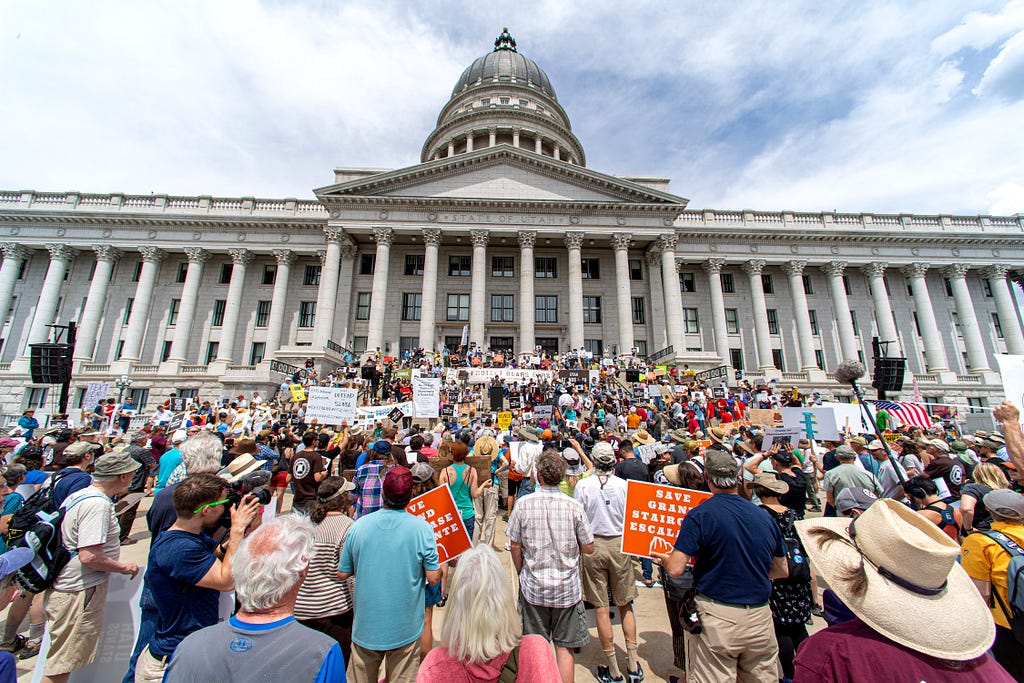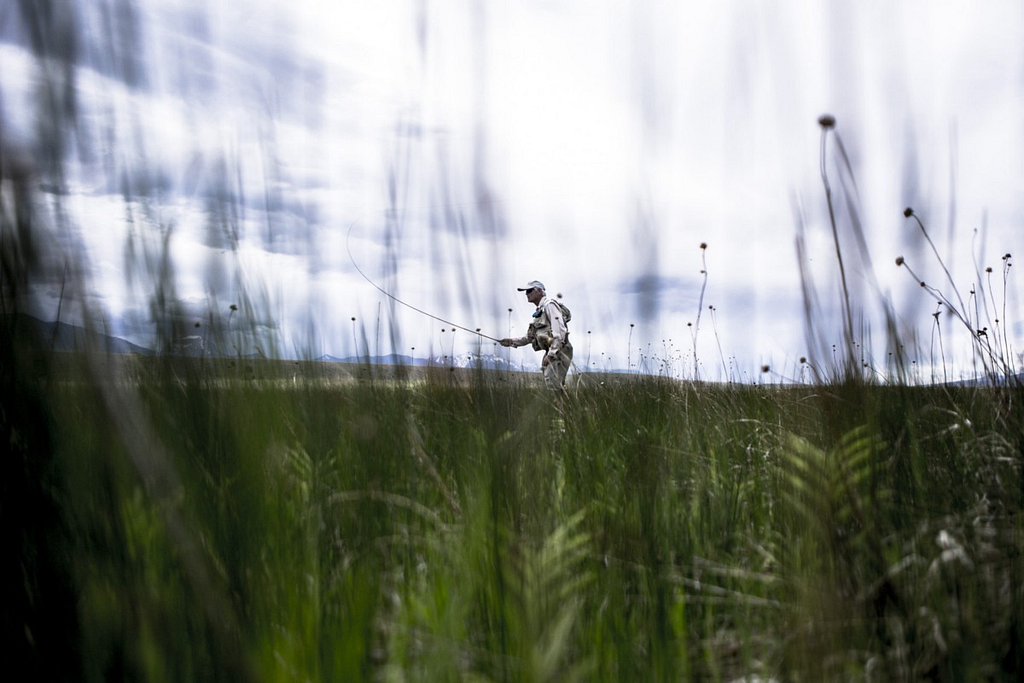Outdoor Apparel Retailer Uses ‘Holistic’ Guidance of B Impact Assessment to Raise the Bar

The coronavirus pandemic has laid bare many ugly truths about our current model of capitalism — the severe income inequality, the belief that human lives and environmental impact are expendable for better profit margins, that only certain people get to decide what the role of business is in society. Many leaders in the Certified B Corporation community are demanding an end to the myth that profits must come at the expense of purpose, caring, and environmental care. I have been inspired by the B Corp community for its innovative leadership over the years, including the current leadership of the community in demanding a better future economy and resisting a return to an unjust, unsustainable normal.
As an outdoor apparel retailer with more than $1 billion in annual sales, Patagonia is seen as a leader in the B Corp community and has established its status as a market leader. While that marks a long and impressive journey from its small beginnings in 1973, the company also is known — and appreciated — for staying true to its roots as a values-driven business and advocate for the environment.
Solidifying that commitment is part of what drew Patagonia in 2012 to become part of the B Corp community, where it since has found a network of similar-minded businesses that serve as resources as well as motivation for improvement. That two-way benefit has been a surprising perk, according to Vincent Stanley, who has been with Patagonia on and off since its beginning in 1973, for many of those years in key executive roles as head of sales or marketing. More informally, he is Patagonia’s longtime chief storyteller.
Stanley and I spoke as part of research for my upcoming book, Better Business: How the B Corp Movement Is Remaking Capitalism One Company at a Time. He shared examples of how Patagonia has evolved, especially over the last decade, when the company took steps to strengthen its governance by adopting the benefit corporation structure and writing its values into its articles of incorporation. Subsequently, Patagonia became a B Corp in 2012 by completing the B Impact Assessment — examining its impact on customers, workers, community, environment, and governance — which Stanley says provides “the only really holistic look” of the company.
Learn more in the following excerpts from my interview with Stanley.
How does B Corp certification solidify and strengthen Patagonia’s long-term genuine commitment to its values?
Stanley: Soon after B Lab started certifying B Corps, they came to visit Patagonia to see if we were interested, and we turned them down. Part of our thinking was, OK, we’re doing all these things — from labor audits with the Fair Labor Association to textile audits with Bluesign to a growing in-house team of people looking at our impacts in the factories — so why would we take on one more thing?
What made a difference for us was when California started considering benefit corporation legislation. We saw that as an opportunity to write these values into the articles for incorporation and to protect the company’s values in the event of succession over time. We liked that idea, so we became a B Corp and a benefit corporation in California in 2012.
What we get from the B Impact Assessment is the only really holistic look we have on our company and our commitment and benefit to multiple stakeholders. That has made a huge difference.
The B Impact Assessment looks at everything, from ratio of CEO pay to that of the lowest paid worker to permeable concrete in the parking lots. It gives people an idea of where they are and then this motivation to improve. It also gives us an opportunity when we are approached by companies or young entrepreneurs looking for advice on how to build values-based businesses — we can recommend B Corps as a valuable community.
The B Impact Assessment also creates a kind of virtuous competition. We look at the impact assessment each time and say, “OK, where are we falling short? What can we do?” And we see other companies’ scores and we say, “What are they doing that we’re not doing?” That is valuable in itself. It gives us an idea where we are and motivation to improve.

Patagonia is one of a number of well-known B Corps that has been a leader in taking public stances on a variety of important social and environmental issues. Is this something that will be expected from customers, given generational changes and expectations among Millennials and Gen Z?

Stanley: We’ve taken a real turn in the last few years. For about 30 years, we were a company that supported activists because we gave 1% of sales to all of these small grassroots organizations. This was formalized with the creation of 1% for the Planet which we were a founding member of. More recently, we made a shift to take a stronger public stance on issues that might be more controversial, but that we’ve been involved with for 30 years. We know what we’re talking about and we’re connected to people who know more than we do.
That history and consistency is critical, particularly for larger companies. If it’s used as a marketing ploy, it’s just going to turn people away.
But we have seen a change in generational values. Millennials and Gen Z are much more responsive than Boomers and Gen X to doing business with companies whose practices they value.
Can you share a few examples of how the company’s stance and relationship with customers have evolved over time?
Stanley: As we have become more of an activist company, the steps we’ve taken have mostly gained enthusiastic response from customers. One example is the Don’t Buy This Jacket ad in 2011 on Black Friday. It took a full vote of our board to let that ad go up because we were worried that it would actually hurt the business or that people would level charges of hypocrisy against us. They did, but it was a minority and many more responded with “OK, this is a good thing for a company to say. This resonates with me.”
In 2016, for Black Friday, we were all set to close the stores and encourage customers to spend their day helping environmental organizations. Then the Monday of that week, a mid-level employee came in and said, “We should keep the stores open and give 100% to grassroots environmental groups.” By that afternoon, approval had been secured all the way up the line.
So in just five years, the process in the company had really changed: We didn’t need a vote of the board because everyone thought it was a great idea. For Black Friday, we had predicted $2.5 million in sales, but we did $10 million. And more than a third of the customers were new.
The other parallel development over the past 10 years is that we’ve increasingly used the stores as community centers. As we’ve started to produce films and books, the stores have hosted more frequent public events that are tied into the local environmental community.
Patagonia Action Works is kind of an extension of that. We created a platform so people can look up their area of interest on the website, pair it with their location and get the names of environmental organizations involved. These are organizations we actively support and give money to. This is another expression of how we take our values or our particular environmental commitments and extend and engage the community. It is a natural extension of our company activism to help make a connection easily possible between interested customers and grantees.
What are your hopes for the future of values-driven businesses, such as those in the B Corp community?
Stanley: We’ve shown how you can appeal to customers on the basis of your values as well as your products. That’s also true of the B Corp movement, and it points out a possibility for more businesses over the next 10 years to connect to people on the basis of values. That’s an unsung way to go about things.
We’re all so afraid of talking about values because it supposedly puts people at odds with each other, but if you make the values deep enough, you connect to people — even with people you might disagree with.
The more you do, the more seems possible.
B the Change gathers and shares the voices from within the movement of people using business as a force for good and the community of Certified B Corporations. The opinions expressed do not necessarily reflect those of the nonprofit B Lab.

How the B Corp Community Motivates Patagonia (Yes, Even Patagonia) to Improve Its Impact Strategies was originally published in B The Change on Medium, where people are continuing the conversation by highlighting and responding to this story.